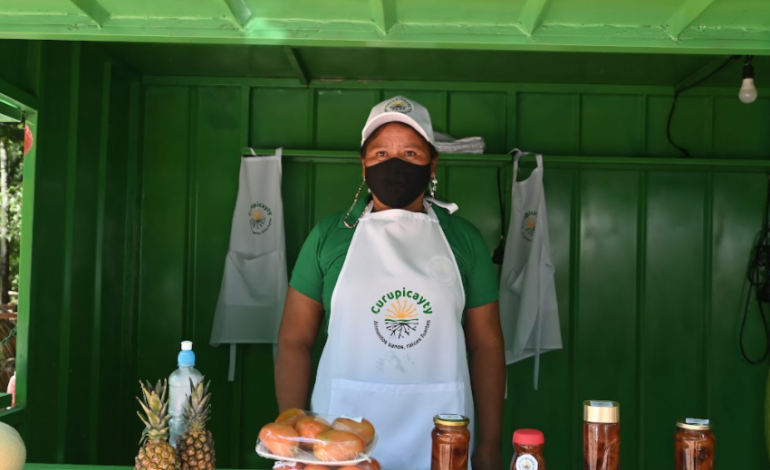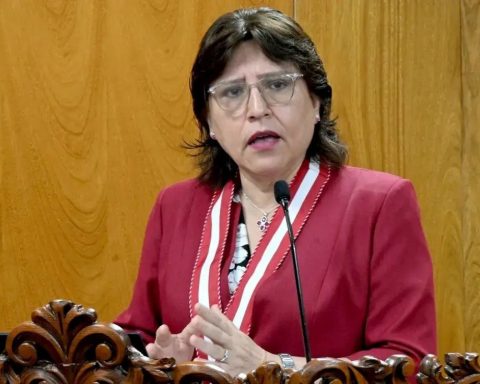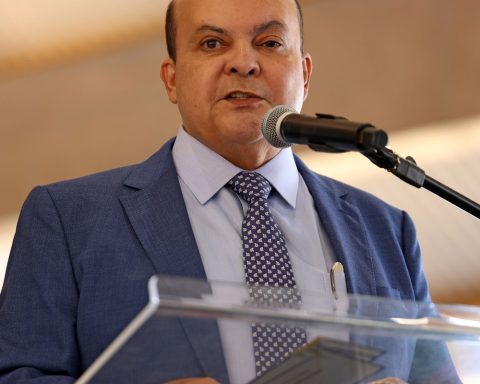The economist and former Finance Minister, Lea Giménez, in his opinion column in the economic magazine FOCO of the newspaper La Nación, indicated that according to the latest revision of the projections of annual per capita income growth for the period 2020-2024 of the IMF, Paraguay is among the countries that experienced a significant drop in the projections of said indicator. With an annual percentage change in per capita income for the period 2020-2024 between -6% and -3%, the IMF estimates that this group of countries (including Paraguay) will have significant scars as a consequence of the pandemic and a large negative gap with regard to improving their quality of life levels.
Although Paraguay presents encouraging data regarding reaching the target of effective coverage of 40% immunization by the end of 2021, structural challenges have been exacerbated, particularly those related to human capital, according to the expert.
On the one hand, he mentioned that Paraguay is in the group of countries with the worst results in terms of missed school days. In these countries, children have missed more than 50% of their classes (the percentage is much higher in the case of Paraguay) and this, if not addressed correctly, will have a significant negative impact on their future job opportunities and well-being. Likewise, Paraguay is also among the worst countries in terms of its ability to administer Covid tests and provide oxygen and therapeutic response to manage and mitigate the impacts of the pandemic.
“In other words, despite the long-awaited and anticipated economic recovery, Paraguay today is among more than half of the emerging market and developing economies, whose per capita incomes had been converging towards those of advanced economies during the last decade and are expected to diverge in the coming years. Even more worrisome is that these divergences are not just at the country level, but there are worrisome divergences within countries as well. If we consider that already before the pandemic, Paraguay closed two years of growth with a downward trend (absence of growth in 2019), which reflected a marginal product of diminishing capital in recent years, it is clear that the exit of this situation will be challenging. Likewise, even before the pandemic, inequality between countries and, within them, was an important obstacle to achieving sustainable and equitable development, this has been significantly exacerbated ”, commented Giménez.
He argued that reversing this divergence in economic and welfare terms, and resuming the development path that we have been traveling will require enormous capacity, commitment and tenacity. “Even more so in a context of rising inflation and high levels of deficit, debt growth, and unemployment. It is time to be cautious and make the right decisions, “he said.
In his opinion, it is essential to achieve herd immunity as soon as possible to return to something close to what we considered normal, and thus, help to reactivate the economy and avoid future closures. Thus, it is also essential to make an effort to stabilize inflation, since it is clear that the inflation currently observed is the result of exogenous and external factors, beyond our control.
Restrictions on mobility disrupted global product supply chains and minimized activity in the service sector, in many cases shifting demands for services onto goods and putting pressure on prices for goods, according to Lea. Additionally, as the world economy began to recover, for example, people globally travel more, move more, return to work, school, etc., the supply of gasoline did not do so to the same extent. . Currently, there are many supply and demand imbalances related to these shocks in global supply chains and mobility.
“Even though much of the current pressure is transitory, it has an ever-evolving dynamic. The role of the Central Bank is key in anchoring medium-term inflation expectations at a level consistent with stable prices. Good communication of monetary policy to the public from the Central Bank authorities would help the observed supply shocks simply have a transitory effect on inflation ”, he highlighted.
The economist emphasizes that in the short term it is essential to continue focusing fiscal policy on providing support to the most vulnerable and guaranteeing health and education services. It is especially not advisable to withdraw too abruptly the social benefits that were granted to vulnerable groups. “We must be careful not to put additional pressure on small businesses. We must be particularly cautious not to negatively impact informal and service sector workers, women, children, and vulnerable families, who felt the full force of the pandemic’s blow. Also, given the pronounced growth of debt in a single year, and the significant fiscal deficit, the credibility of fiscal policy must be protected. This year will be the third in which the Treasury will invoke the escape clause of the Fiscal Responsibility Law to meet expenses. It is time to review the fiscal rule and strengthen it. The IMF speaks of three key properties for fiscal rules: sustainability (politically and economically realistic fiscal objectives that define a debt ceiling), simplicity (a simple rule for the public and for markets to understand), and stabilization (a rule that allow you to spend more in recessive periods and save in periods of economic boom) ”.
As he considered, it is important to review the rule, resolve its weaknesses that have already been duly documented in the past, and have a clear and transparent communication plan to periodically explain to the different economic actors and the markets how the Treasury proposes to restore the rule (fiscal health!). This should include, at a minimum, in addition to an explanation of the new rule, an explanation of the implications of escaping the rule, the time it will take to get back on track, the assumptions used for the analysis, and the risks and potential scenarios that may arise. .
Last but not least (in fact, it is central), he stressed that we cannot forget that Covid is here to stay. “We must internalize that. Furthermore, it is clear that it will not be the last pandemic or crisis; in fact, environmental experts agree that the 2030s will be significantly worse than the 2020s. There is a new normal and we have to adapt and prepare. In addition to maintaining macroeconomic health, we must resume efforts focused on the growth of real income of the population, not only growth of GDP, but growth of GDP per capita and real income of workers. This does not entail simple salary increases (nooo!), But joint efforts to enhance the human talent of our country. Education, reskilling, and preparation to take advantage of the potential benefits that digitization offers ”.
It is important to equip the current and future workforce with skills and tools that allow them to successfully enter the economy and the formal work sector, and, therefore, quality jobs that guarantee social protection. It is essential to understand how positive this virtuous circle is for all of us: investment in human capital (health and education), better opportunities, access to the formal economy and quality jobs, access to social protection, and strengthening of the country’s pension system as a result of formalization.
“Names of candidates are already being heard for 2023. Let’s see it as an opportunity to put them to the test before they are elected. Let them tell us about their proposals, their ideas, not just slogans that sound good, but also clear proposals that show the depth of their approaches and their commitment to moving our country forward, ”he concluded.

















